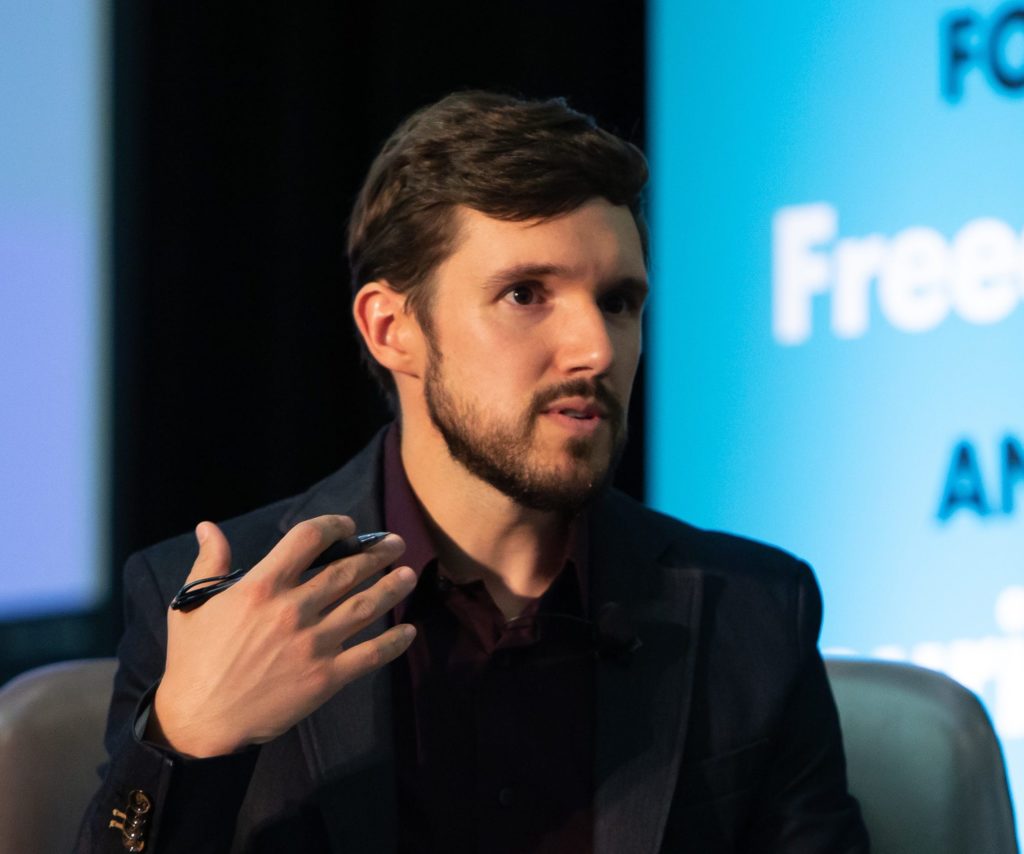“That’s . . . unique,” is what I thought when I first read the title of Tim Chermak’s TOS-Con 2019 talk: “The Morality of More: How Advertising Inspires Us to Be More Productive, Make More Money, and Achieve More Happiness.”
I had never heard such high praise for advertising. The default position I typically hear is that it’s a nuisance. So I asked Tim for a sneak peek. Here’s part of our conversation.
Hersey: Many people see advertisements as annoyances to skip past or ignore. I take it you see something else?
Chermak: Like anybody else, I want to skip ads too. But that's because many ads are boring and uninspired, not because there's anything inherently wrong with advertising. When done right, advertising can be entertaining, inspirational, and even educational! Just look at the Super Bowl: hundreds of millions of Americans get together to watch the commercials. Many people don't even care about the game! The same is true of trailers before movies. I love getting to the theater early so I can watch all the preview trailers for upcoming films. These are advertisements, but I thoroughly enjoy them. As a culture, I don't think we really want fewer ads. We want fewer bad ads. That's an important distinction.
Hersey: How does advertising inspire us to achieve more happiness?
Chermak: Advertising is inherently optimistic. We take it for granted that the premise of every advertisement is that your life can be better (if you buy the product being promoted). Now, of course, we can choose to be cynical and think that advertisers are preying on our insecurities to sell their products. This can be simultaneously true, but the important question is: Does it change the fact that ads are inherently optimistic? Does it change the fact that advertising assumes, inherently, that a better future is always possible?
I think this is a wonderful thought. It should instantly cheer you up! A better, more prosperous future is always possible. That's the timeless message of advertising. To me, that's the American dream. Not homeownership or a college education or retirement. The American dream is the idea that a more prosperous future is always possible.
Not all countries or cultures believe this, or believe it as sincerely as most Americans do (or at least used to). Unfortunately, it's easy to be a skeptic. It's easy to be a pessimist. It's easy to be a cynic. It costs you nothing, and there's an immediate payoff of perceived “moral superiority.” Cynicism is easier than awe. But advertising always takes the moral high ground in proclaiming that things can be better. If that doesn't inspire you to achieve more happiness, I don't know what would.
Hersey: Do you have a favorite ad, and why is it your favorite?
Chermak: One of my favorite ads is this Cadillac ad from 2014. The reason I love this particular advertisement is that it never even mentions the features or benefits of the product. It sells an idea, and a fairly controversial one: Americans work harder than people in many other countries do, and we shouldn't be ashamed of our capitalist, entrepreneurial ambition. Cadillac knows that their core demographic is self-made men who have achieved success in the business world. To the right person, this ad is exciting and aspirational and full of emotionally charged confirmation bias. Without even mentioning the actual vehicle, it says, this is the type of person who buys a Cadillac. You buy the identity, not the car. Brilliant.
What else does Chermak have to say about what he calls “the morality of more”? Find out at TOS-Con 2019: Philosophy for Freedom and Flourishing.
You’ll save 20–50% if you register before March 15!
See you in Park City!















